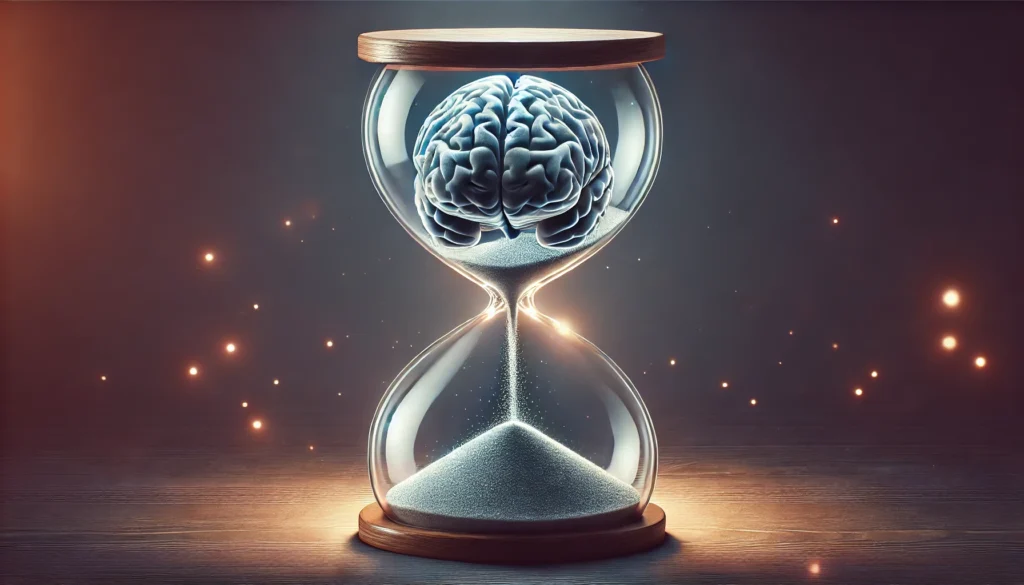Sleep is not simply a passive state of rest but a vital biological function that orchestrates everything from memory consolidation and emotional regulation to cellular repair and metabolic detoxification. Over the past several decades, neuroscience has unearthed the intricate connections between sleep and the brain, illuminating why even minor disruptions to sleep quality and quantity can reverberate through virtually every cognitive and neurological system. The scientific consensus is increasingly clear: the effects on the brain from lack of sleep are not only significant but potentially irreversible if chronically unaddressed.
You may also like : Best Things for Brain Health: Expert-Backed Strategies to Keep Your Mind Sharp
In today’s fast-paced, high-performance culture, sleep deprivation is often seen as a badge of honor, a sacrifice made for productivity. However, research tells a more sobering story. The science on lack of sleep paints a comprehensive picture of a brain under siege—disrupted neural connectivity, impaired memory, emotional dysregulation, and increased vulnerability to neurodegenerative diseases. What does lack of sleep do to your brain over time? The answer, backed by a growing body of empirical evidence, is as urgent as it is unsettling.
This article explores the mechanisms by which sleep deprivation impacts the brain, categorizing its effects across domains of cognitive decline, structural brain damage, and long-term functional recovery. Grounded in neuroscience, clinical research, and practical health insights, it offers a deep dive into how the sleep-deprived brain functions—and malfunctions—alongside evidence-based strategies for mitigating the damage and restoring brain health.
Understanding Sleep and Brain Function: Why Rest Is Essential for Neural Health
Sleep and brain function are deeply interconnected through a symphony of neurochemical processes and structural reorganizations that occur predominantly during the sleep cycle. While we sleep, the brain does not merely shut off; rather, it becomes intensely active in ways that are essential for our cognitive and emotional functioning. One of the most critical processes during sleep is memory consolidation, where the hippocampus and neocortex collaborate to stabilize and integrate new information. Without adequate sleep, especially rapid eye movement (REM) and slow-wave sleep (SWS), these cognitive processes falter.
Additionally, sleep facilitates the glymphatic system—a specialized waste clearance pathway in the brain—that is particularly active during deep sleep. This system removes neurotoxic waste products such as beta-amyloid, a protein associated with Alzheimer’s disease. Sleep loss disrupts this clearance process, allowing toxins to accumulate, potentially contributing to long-term neurological damage. This is a compelling explanation for why sleep deprivation has been shown to accelerate cognitive aging and increase the risk of dementia.
Neurotransmitter regulation also occurs during sleep. The balance of critical chemicals such as dopamine, serotonin, and GABA depends on consistent sleep cycles. These neurotransmitters influence mood, attention, and stress responses, and their dysregulation can result in anxiety, depression, and impaired decision-making. Therefore, the relationship between sleep and the brain is far from superficial—it is foundational, complex, and essential to virtually every aspect of brain health and cognitive integrity.
The Immediate Cognitive Effects of Sleep Deprivation
Sleep deprivation effects on brain function can become evident after just one night of poor sleep. Studies using functional MRI (fMRI) reveal that even short-term sleep loss significantly impairs prefrontal cortex activity—the area responsible for executive functions such as decision-making, reasoning, and impulse control. As prefrontal inhibition decreases, the amygdala—the emotional center of the brain—becomes hyperactive. This dynamic leads to increased emotional reactivity, decreased rational judgment, and impaired social interactions.
Cognitive decline due to sleep deprivation can manifest as reduced attention span, slower reaction times, and diminished problem-solving capacity. These impairments are particularly concerning in professions requiring precision and alertness, such as healthcare, aviation, and transportation. Furthermore, the decline is cumulative. Each additional night of restricted sleep compounds the cognitive burden, leading to a measurable deterioration in mental performance, even if the individual believes they have adapted.
One frequently overlooked aspect of the sleep-deprived brain is its tendency to experience microsleeps—brief, involuntary lapses in attention that last for a fraction of a second. During these episodes, the brain essentially goes offline, creating a significant risk for accidents and errors. This makes the question “how does sleep deprivation affect the brain” critically relevant not only for personal health but also for public safety. Short-term sleep deprivation, while seemingly benign, can have disproportionately severe consequences when repeated or ignored.

Structural and Functional Brain Changes from Chronic Sleep Loss
While the immediate cognitive symptoms of sleep deprivation are troubling, the long-term structural and functional brain changes are even more alarming. Chronic sleep loss alters gray matter volume, especially in regions involved in memory, attention, and emotional regulation. Studies using neuroimaging have shown shrinkage in the hippocampus, the brain’s memory hub, in individuals who consistently sleep less than six hours per night.
White matter integrity, which supports communication between brain regions, also degrades with sustained sleep deprivation. This degeneration can lead to a slowdown in neural processing speed and an overall decline in cognitive fluidity. In addition to gray and white matter changes, chronic sleep deprivation affects the brain’s ability to produce brain-derived neurotrophic factor (BDNF), a protein essential for neuroplasticity and the formation of new neural connections. The suppression of BDNF has serious implications for learning, memory retention, and mental resilience.
More alarmingly, evidence suggests that brain damage from lack of sleep may not be entirely reversible. While the brain possesses a remarkable capacity for repair, repeated cycles of sleep loss followed by inadequate recovery time can lead to lasting damage. Neuroinflammation, oxidative stress, and metabolic dysregulation become entrenched, setting the stage for chronic cognitive impairment. Thus, the effects on the brain from lack of sleep are not merely functional—they can be structural and enduring, challenging the brain’s ability to fully recover.
Sleep Deprivation and the Risk of Neurodegenerative Diseases
One of the most concerning revelations from recent research is the link between sleep deprivation and an increased risk of neurodegenerative diseases. Chronic sleep loss is associated with higher levels of beta-amyloid and tau proteins—hallmarks of Alzheimer’s and other forms of dementia. This accumulation may result from impaired glymphatic function during sleep, as the brain fails to clear out neurotoxic waste.
Parkinson’s disease, too, shows correlations with disrupted sleep. Patients often experience sleep disorders years before the onset of motor symptoms, suggesting that sleep disruption may be an early marker or even a contributing factor in disease progression. Additionally, the sleep-deprived brain shows signs of impaired mitochondrial function, which can lead to energy deficits in neurons and increase vulnerability to cell death.
What does lack of sleep do to your brain over time if left unchecked? It may set in motion a cascade of neurobiological changes that accelerate cognitive aging and diminish quality of life. The science on lack of sleep increasingly positions it as a modifiable risk factor for neurodegeneration—one that can be addressed through lifestyle interventions, sleep hygiene practices, and targeted medical therapies. Early recognition and intervention are key to preserving cognitive function and reducing disease risk.
The Sleep-Deprived Brain and Emotional Dysregulation
The impact of sleep deprivation on emotional health is both profound and multifaceted. Emotional regulation depends heavily on the functional connectivity between the prefrontal cortex and the amygdala. In a well-rested brain, the prefrontal cortex modulates emotional responses, maintaining balance and perspective. However, in a sleep-deprived brain, this regulatory pathway becomes disrupted, allowing the amygdala to dominate.
This shift results in heightened emotional reactivity, mood swings, and an increased likelihood of experiencing symptoms of anxiety and depression. The keyword phrase “how does lack of sleep affect the brain” is particularly relevant here, as mood instability is one of the earliest and most noticeable consequences. Sleep loss lowers thresholds for stress, impairs empathy, and reduces social competence, thereby affecting both personal relationships and professional performance.
Furthermore, the chronic elevation of cortisol, the body’s primary stress hormone, due to sleep deprivation exacerbates emotional instability and contributes to systemic inflammation. This creates a feedback loop, where emotional distress further impairs sleep quality, perpetuating a cycle of mental health decline. Addressing sleep as a primary pillar of emotional well-being is thus not optional but essential in both clinical and preventive mental health strategies.

The Stages of Sleep Deprivation: From Mild Impairment to Severe Brain Dysfunction
Understanding the stages of lack of sleep is crucial for identifying early warning signs and intervening before long-term damage occurs. In the initial stage, typically after 16–24 hours of wakefulness, individuals may experience reduced alertness, slower reaction times, and minor memory lapses. These symptoms, while subtle, mark the beginning of cognitive and emotional dysregulation.
By the second stage, usually reached after 24–48 hours without sleep, the brain begins to experience more pronounced impairments. Decision-making becomes compromised, emotional volatility increases, and microsleeps may begin to occur. Individuals may feel as though they are functioning normally, but objective tests reveal significant declines in performance.
After 72 hours of sleep deprivation, hallucinations, delusional thinking, and severe mood disturbances may occur. This stage indicates serious impairment in cortical functioning and neurotransmitter imbalance. Continued sleep loss beyond this point poses a risk for acute psychosis and irreversible neural damage. The question “can lack of sleep cause brain damage” is no longer speculative at this juncture—it is demonstrably affirmed by both clinical observation and neuroimaging data.
Recognizing these stages of lack of sleep can empower individuals and healthcare providers to act before cognitive impairment becomes entrenched. Even short-term recovery sleep may not fully reverse the damage accrued in the later stages, underscoring the importance of consistent, high-quality sleep as a non-negotiable component of brain health.
Does Sleep Deprivation Cause Brain Damage? Scientific Perspectives on a Pressing Question
The notion of sleep deprivation brain damage has evolved from a controversial hypothesis to an increasingly accepted scientific reality. Experimental studies in animals have shown that prolonged sleep deprivation leads to neuronal apoptosis—the programmed death of brain cells—in key areas responsible for cognition and alertness. In humans, while ethical constraints limit experimental designs, correlational studies and post-mortem analyses reveal concerning patterns.
Structural imaging studies show that individuals with chronic insomnia or sleep apnea exhibit brain atrophy in the frontal and temporal lobes. These changes are associated with impaired executive function, language processing, and emotional regulation. While causality is difficult to establish definitively, the accumulation of evidence suggests that sleep loss brain damage is not only possible but probable under conditions of chronic deprivation.
A particularly compelling area of research involves the cumulative effect of partial sleep deprivation—sleeping less than the recommended 7–9 hours per night over weeks or months. This pattern, common in modern society, appears to produce similar structural changes and cognitive decline as total sleep deprivation, albeit more gradually. This has profound implications for workplace culture, academic performance, and public health policy.
Answering the question “does sleep deprivation cause brain damage” with scientific integrity requires acknowledging both the complexity and the consistency of the evidence. While individual susceptibility may vary, the broader patterns are unmistakable: sleep is not optional, and its deprivation carries a steep neurological cost.
Pathways to Recovery: Can the Brain Heal After Sleep Deprivation?
Given the severity of sleep deprivation effects on the brain, the possibility of recovery becomes a critical area of interest. Fortunately, the brain is remarkably resilient, especially when intervention occurs early. Neuroplasticity—the brain’s capacity to reorganize and form new connections—offers a path forward. However, recovery is not instantaneous and depends on several factors, including the duration and severity of the sleep loss, age, baseline brain health, and lifestyle habits.
Rebound sleep, characterized by longer and more intense episodes of REM and slow-wave sleep, often occurs following acute deprivation. This phenomenon suggests that the brain prioritizes its most restorative phases when given the opportunity. However, in cases of chronic sleep restriction, this rebound may be insufficient to reverse all functional deficits. Long-term strategies such as cognitive behavioral therapy for insomnia (CBT-I), circadian rhythm regulation, and pharmacological interventions may be necessary to restore full function.
Emerging research into neurogenesis—the creation of new neurons—offers additional hope. Certain brain regions, notably the hippocampus, retain the ability to generate new cells in adulthood, especially in response to exercise, stress reduction, and quality sleep. These findings reinforce the importance of a holistic recovery approach that integrates physical activity, mindfulness practices, and dietary support alongside improved sleep habits.
Ultimately, while some degree of sleep deprivation brain damage may be permanent in extreme cases, the vast majority of individuals can experience significant, even full, recovery with sustained behavioral change. The key lies in early recognition, proactive intervention, and ongoing commitment to brain health through sleep prioritization.
Frequently Asked Questions: How Sleep Deprivation Affects the Brain
1. Can the effects of sleep deprivation on brain function be passed on to future generations?
Emerging research in epigenetics suggests that the effects of sleep deprivation may have intergenerational consequences. Chronic sleep loss can alter gene expression in brain cells through changes in DNA methylation and histone modification, both of which influence how genes are turned on or off. While these modifications do not change the DNA sequence itself, they may be passed down and influence how the next generation’s brain responds to stress, cognition, and sleep-wake cycles. Studies in animal models have shown that offspring of sleep-deprived parents exhibit cognitive impairments and heightened sensitivity to stress, suggesting inherited vulnerability. This insight deepens our understanding of how the lack of sleep on the brain could shape neurological health far beyond the individual.
2. How does long-term sleep deprivation impact creativity and abstract thinking?
Creativity relies on the brain’s ability to connect disparate ideas, a function rooted in the default mode network (DMN), which is highly active during rest and introspective thought. Sleep deprivation disrupts this network, particularly in regions tied to imagination and divergent thinking. The result is a diminished capacity for metaphor, innovation, and problem-solving that extends beyond logical reasoning. This degradation of higher-order cognition is an often-overlooked aspect of sleep deprivation effects on brain function. For professions requiring innovation—such as design, entrepreneurship, or scientific research—the sleep-deprived brain can significantly undermine performance.
3. Are certain parts of the brain more vulnerable to sleep loss than others?
Yes, specific brain regions exhibit greater sensitivity to sleep deprivation. The prefrontal cortex, essential for judgment, planning, and impulse control, is among the first to show functional decline. The hippocampus, crucial for memory consolidation, is also severely impacted, especially in REM sleep-deprived states. Additionally, recent studies highlight the thalamus—responsible for sensory relay—as being less responsive, which may contribute to the cognitive fog many people report. These regional vulnerabilities explain why the effects on the brain from lack of sleep are so diverse and far-reaching. Understanding which structures are most susceptible can inform targeted recovery strategies.
4. What role does sleep play in protecting the brain from environmental toxins?
Sleep acts as a neuroprotective filter, primarily through the glymphatic system, which becomes more active during slow-wave sleep. This system clears neurotoxins such as beta-amyloid, pesticides, and even heavy metals from brain tissue. When sleep is consistently disrupted, these toxins accumulate and contribute to inflammation and oxidative stress. Over time, this may accelerate neurodegenerative processes and exacerbate brain damage from lack of sleep. In high-exposure environments—such as industrial workplaces or polluted urban areas—sleep hygiene becomes even more critical for long-term cognitive preservation.
5. Can targeted nutrition help mitigate the cognitive effects of chronic sleep deprivation?
While nutrition cannot replace the restorative power of sleep, it can help buffer some of the damage. Diets rich in omega-3 fatty acids, B vitamins, magnesium, and polyphenols support neurotransmitter function and reduce neuroinflammation. Antioxidant-rich foods such as blueberries, leafy greens, and green tea can help counteract free radical damage caused by sleep deprivation brain damage. Hydration is also essential, as even mild dehydration can compound cognitive fatigue. Strategic supplementation—under the guidance of a healthcare provider—may offer additional support. Integrating nutritional strategies into daily life provides one more layer of defense against the sleep-deprived brain.
6. How does sleep deprivation affect social cognition and interpersonal relationships?
Sleep and brain function extend into the social domain, particularly through the regulation of empathy, emotional perception, and social reasoning. Sleep deprivation has been shown to impair one’s ability to accurately interpret facial expressions and emotional tone, increasing the likelihood of miscommunication and conflict. It also reduces activity in brain regions like the anterior cingulate cortex and temporoparietal junction, which are essential for perspective-taking. Over time, this can strain personal relationships, damage professional rapport, and contribute to social withdrawal. The sleep-deprived brain is not just less focused—it’s less connected to others.
7. Is there a gender difference in how sleep deprivation affects the brain?
Growing evidence suggests that men and women may experience different neurological effects from sleep deprivation. For example, studies have shown that women tend to suffer more pronounced mood disturbances, while men often display greater impairment in cognitive performance. Hormonal cycles may influence these disparities, especially in relation to the stress response and emotional regulation. Moreover, sleep deprivation effects on the brain might vary based on structural and functional differences in how male and female brains process sleep architecture. Understanding these nuances can inform more personalized approaches to treatment and prevention.
8. Can mindfulness or meditation offset some of the damage caused by poor sleep?
Mindfulness practices, especially those focused on breathwork and body awareness, can partially restore some functions affected by sleep deprivation. While they cannot replace sleep’s restorative biological processes, techniques such as yoga nidra and non-sleep deep rest (NSDR) protocols can promote neural recovery and reduce stress-related inflammation. Meditation has also been shown to increase gray matter density in areas like the hippocampus, potentially helping counteract sleep loss brain damage. These practices enhance parasympathetic nervous system activity, creating a state of deep relaxation that may help alleviate the effects on the brain from lack of sleep. Regular incorporation into daily routines offers a practical buffer.
9. How soon do cognitive improvements appear once sleep is restored after deprivation?
The timeline for recovery from sleep deprivation varies depending on its severity and duration. Short-term sleep loss—one or two nights—can often be reversed with one or two full nights of restorative sleep. However, the recovery of sleep and brain function after chronic deprivation is less straightforward. It may take weeks of consistent, high-quality sleep to restore baseline cognitive performance and emotional balance. Some neural changes, such as inflammation or reduction in gray matter, may take months to resolve—or may not fully reverse. Recognizing the stages of lack of sleep and acting early is key to preventing prolonged deficits.
10. Could future technologies help prevent or reverse brain damage from lack of sleep?
The intersection of neuroscience and technology offers promising tools to combat sleep deprivation brain damage. Neurofeedback systems, wearable sleep trackers with AI algorithms, and transcranial stimulation devices are already being developed to enhance sleep quality and monitor brain activity in real-time. Some experimental therapies even explore using low-frequency electrical pulses to induce slow-wave sleep in sleep-deprived individuals. These innovations could significantly change how we manage the long-term effects of sleep loss on the brain. As science on lack of sleep continues to advance, technology may become a key ally in reversing or mitigating its impact.

Conclusion: Protecting the Brain from the Silent Erosion of Sleep Deprivation
The cumulative evidence makes one thing abundantly clear: the effects on the brain from lack of sleep are not merely inconvenient—they are potentially devastating. From immediate impairments in attention and memory to long-term structural changes and increased risk of neurodegenerative diseases, sleep deprivation imposes a neurological toll that cannot be ignored. The keyword questions—”how does sleep deprivation affect the brain,” “can sleep deprivation cause brain damage,” and “what does lack of sleep do to your brain”—are no longer abstract concerns but urgent health priorities.
Yet the narrative need not be fatalistic. Science also shows that the brain is dynamic, adaptable, and capable of healing. By recognizing the stages of lack of sleep and understanding the mechanisms by which damage occurs, we can take informed, proactive steps to mitigate harm. Lifestyle changes, therapeutic interventions, and sleep education are powerful tools in reclaiming cognitive vitality.
In a world that often prizes wakefulness over wellness, it is time to reframe sleep not as a luxury but as a cornerstone of brain health and longevity. The science on lack of sleep has spoken—loudly and unequivocally. Protecting our brains begins with protecting our sleep.
sleep’s impact on memory, cognitive decline and rest, REM cycle disruption, glymphatic system and brain health, chronic insomnia effects, emotional dysregulation from poor sleep, brain fog and fatigue, mental clarity and rest, restorative sleep techniques, brain inflammation from poor sleep, neurological recovery tips, sleep and neuroplasticity, executive function and rest, brain detox during sleep, poor sleep and mental health, stress hormones and sleep, cognitive resilience and rest, deep sleep importance, neural repair and sleep cycles, circadian rhythm disruption
Further Reading:
The consequences of sleep deprivation on cognitive performance
The impact of sleep and exercise on brain atrophy in mild cognitive impairment
The sleep-deprived human brain
Disclaimer
The information contained in this article is provided for general informational purposes only and is not intended to serve as medical, legal, or professional advice. While Health11News strives to present accurate, up-to-date, and reliable content, no warranty or guarantee, expressed or implied, is made regarding the completeness, accuracy, or adequacy of the information provided. Readers are strongly advised to seek the guidance of a qualified healthcare provider or other relevant professionals before acting on any information contained in this article. Health11News, its authors, editors, and contributors expressly disclaim any liability for any damages, losses, or consequences arising directly or indirectly from the use, interpretation, or reliance on any information presented herein. The views and opinions expressed in this article are those of the author(s) and do not necessarily reflect the official policies or positions of Health11News.


